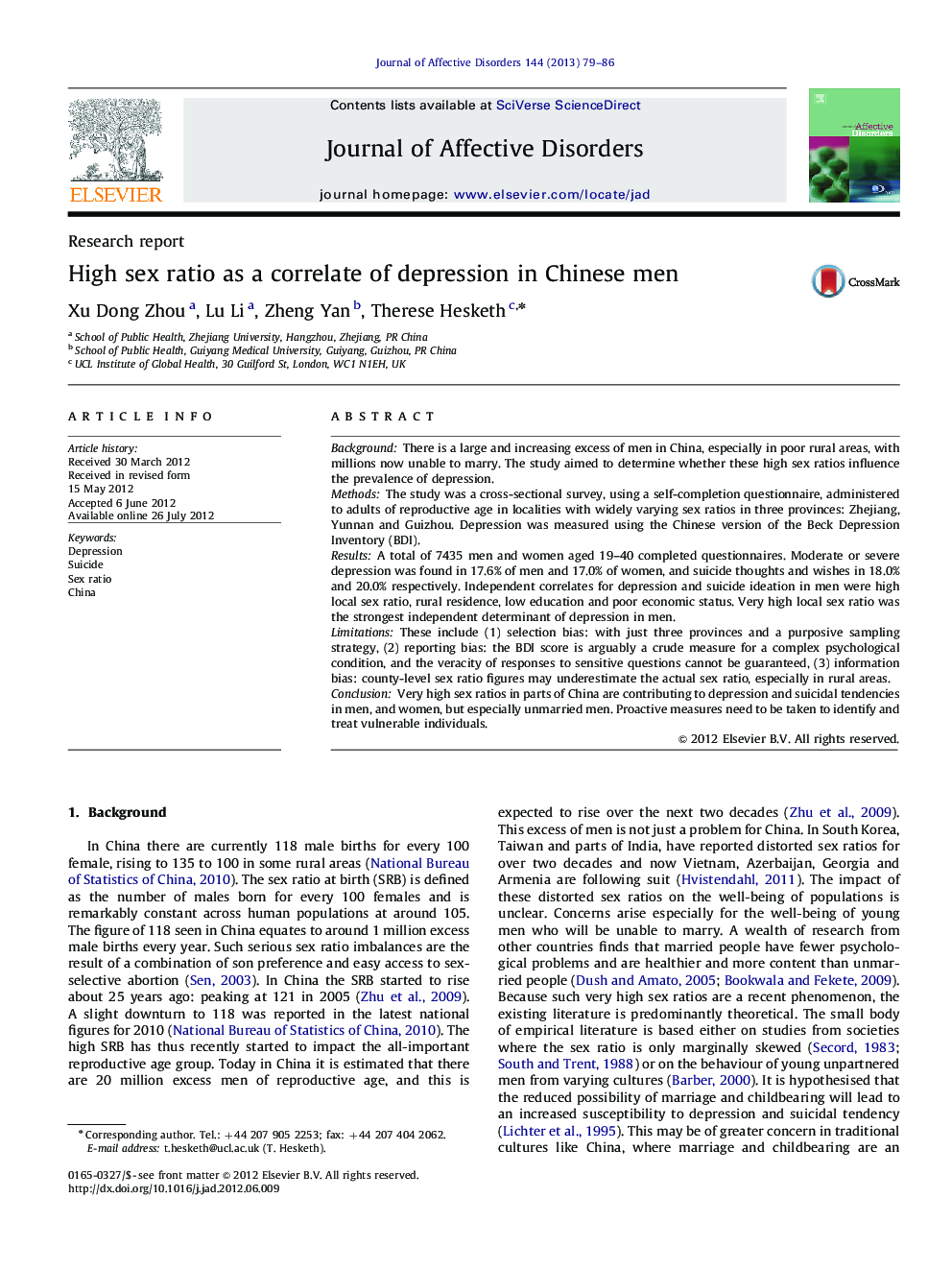| Article ID | Journal | Published Year | Pages | File Type |
|---|---|---|---|---|
| 6234900 | Journal of Affective Disorders | 2013 | 8 Pages |
BackgroundThere is a large and increasing excess of men in China, especially in poor rural areas, with millions now unable to marry. The study aimed to determine whether these high sex ratios influence the prevalence of depression.MethodsThe study was a cross-sectional survey, using a self-completion questionnaire, administered to adults of reproductive age in localities with widely varying sex ratios in three provinces: Zhejiang, Yunnan and Guizhou. Depression was measured using the Chinese version of the Beck Depression Inventory (BDI).ResultsA total of 7435 men and women aged 19-40 completed questionnaires. Moderate or severe depression was found in 17.6% of men and 17.0% of women, and suicide thoughts and wishes in 18.0% and 20.0% respectively. Independent correlates for depression and suicide ideation in men were high local sex ratio, rural residence, low education and poor economic status. Very high local sex ratio was the strongest independent determinant of depression in men.LimitationsThese include (1) selection bias: with just three provinces and a purposive sampling strategy, (2) reporting bias: the BDI score is arguably a crude measure for a complex psychological condition, and the veracity of responses to sensitive questions cannot be guaranteed, (3) information bias: county-level sex ratio figures may underestimate the actual sex ratio, especially in rural areas.ConclusionVery high sex ratios in parts of China are contributing to depression and suicidal tendencies in men, and women, but especially unmarried men. Proactive measures need to be taken to identify and treat vulnerable individuals.
